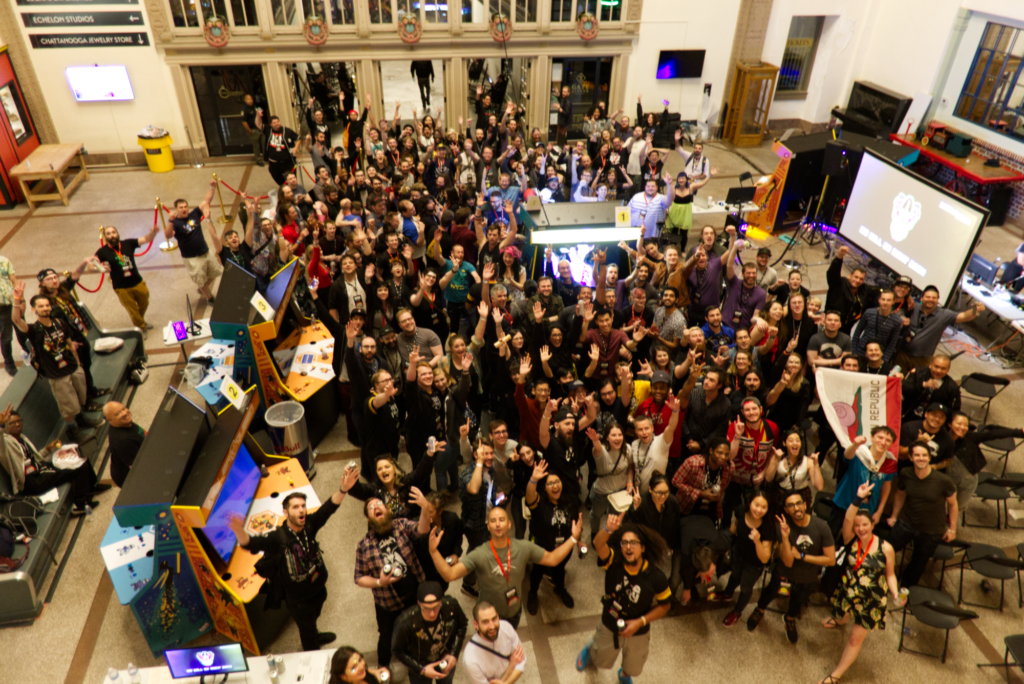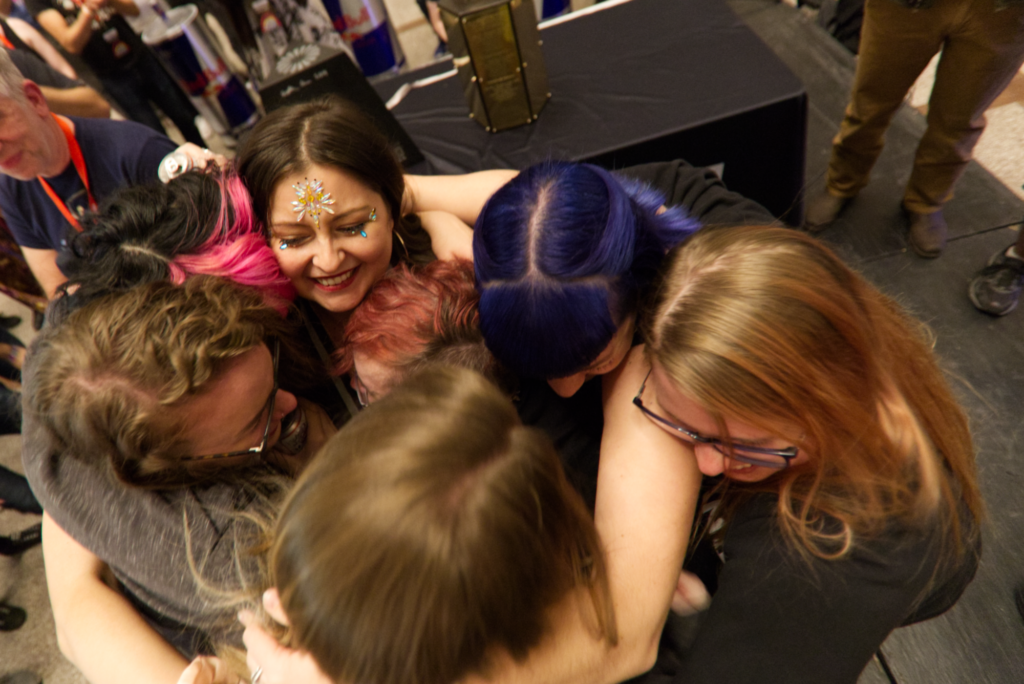The crowds were swelled with gawkers wandering in from the street, drawn by the raucous eruptions of chants and cheering. They looked on, baffled, as hundreds of fans vacillated from elation to despair while watching what must have been a mystery to anyone not in the know.
Ten people dominated a makeshift stage at the Chattanooga Choo-Choo, an event space in Chattanooga, Tenn., their fingers tapping out an erratic yet calculated rhythm on a massive cabinet’s buttons. To the hundreds of fans who’d intentionally traveled to this small town (and the hundreds more watching online), every touch of a button and flick of a joystick was understood, debated and reveled in.

The game dominating the attentions of onlookers and fans alike was Killer Queen. The event, BumbleBash 4. The fourth annual tournament for the indie arcade sensation brought attendees from cities across the U.S. for a weekend-long battle of the best. It was also the first year the event officially invited other indie arcade developers and included their games in makeshift tournaments. Joining Josh DeBonis and Nik Mikros, developers of Killer Queen, were the creators of DeathBall, Galactic Battleground, Switch N’ Shoot, Cosmotrons, Armed and Gelatinous and BumbleBear’s other game, Black Emperor. The weekend was packed with more than just fans, and had events, talks, music and more.
BumbleBash 4’s success wasn’t just in its wide draw of players, which relative to the number of players who attend other arcade events like the Golden Tee World Championships or Big Buck World Championships, but also in the passion of the players who came. There are thousands more Golden Tee and Big Buck cabinets that have been building a fan base for years longer than Killer Queen, yet their events are definitely not drawing thousands more players than this year’s BumbleBash. That alone illustrates the gold these devs have struck, and the resounding message from all of the indie devs at this year’s event was: support us and you won’t regret it.

“I think there’re two modes, there’s growing and there’s dying, there’s no staying the same. Pac-Man’s not going to make many new fans,” said Tony Hauber, creator of DeathBall. “You’ve got to start investing in the future, the third wave is happening. We need to put some new games out there. To do that we need people to invest.”
With how out of the way Chattanooga is for most attendees, it’s obvious players are willing to drop hundreds of dollars to be at an event for this game, what’s keeping them from dropping the same money playing on cabinets in new cities that don’t have a Killer Queen scene yet?
“Maybe it won’t grow but that’s okay,” Hauber continued. “I think in the world of anxiety we’re all facing, sometimes it’s good to ask yourself not what happens if it fails but what happens if it succeeds?”
Look to RePlay’s November issue for more extensive coverage of BumbleBash, and catch Mikros and DeBonis’ keynote at the event here.

